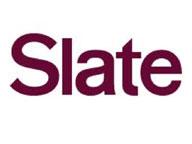Faculty News
—
Prof. Steven Blader on an NAACP suggestion to fast-track underrepresented workers
—

Excerpt from Marketplace -- "...Blader says, even if fast-tracking isn’t officially acknowledged, it’s a common practice, and so are the problems it can cause – no matter what demographic the fast-tracked worker is from. Imagine, says Blader, that you’re a worker watching your colleague get promoted quickly. 'I feel demotivated,' he says. 'I feel that no matter how hard I try, I may not benefit from all those efforts, because [the organization is] prioritizing things besides my efforts, and skills, and abilities. And as a result, I'm going to become more complacent, because I’m going to kind of start to feel like, "What’s the point?"'"
Faculty News
—

Excerpt from Marketplace -- "...Blader says, even if fast-tracking isn’t officially acknowledged, it’s a common practice, and so are the problems it can cause – no matter what demographic the fast-tracked worker is from. Imagine, says Blader, that you’re a worker watching your colleague get promoted quickly. 'I feel demotivated,' he says. 'I feel that no matter how hard I try, I may not benefit from all those efforts, because [the organization is] prioritizing things besides my efforts, and skills, and abilities. And as a result, I'm going to become more complacent, because I’m going to kind of start to feel like, "What’s the point?"'"




















